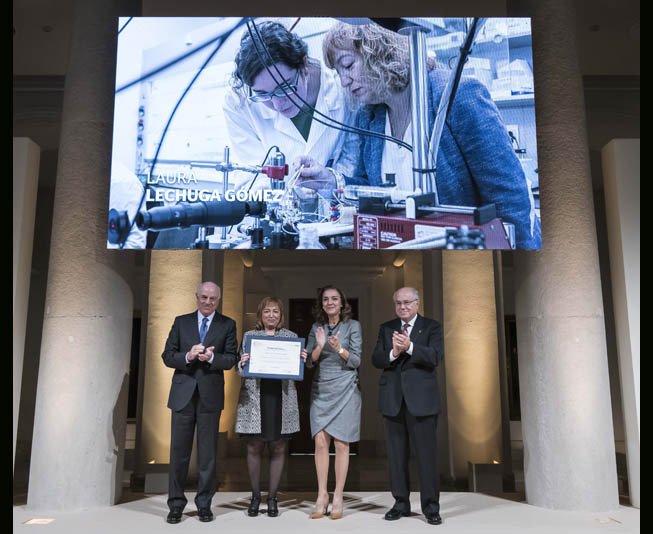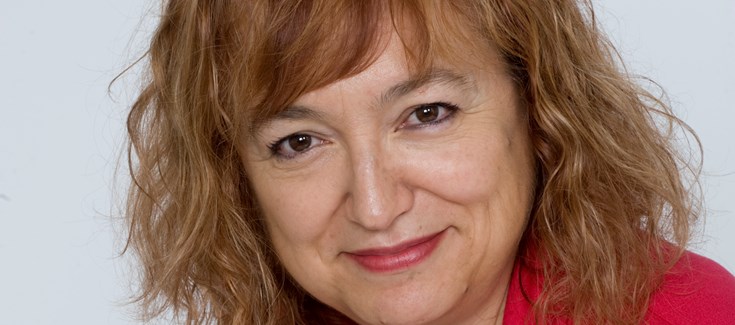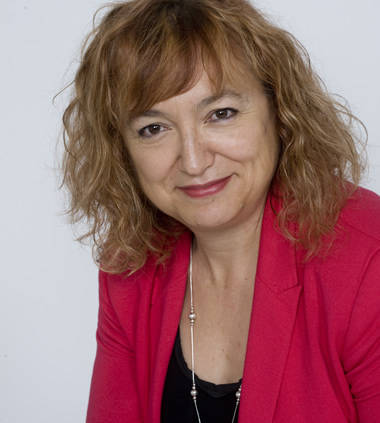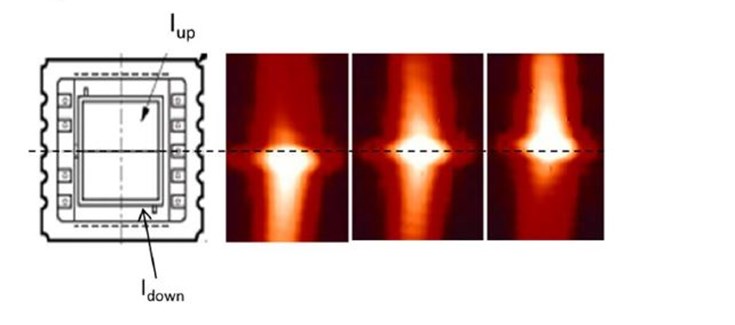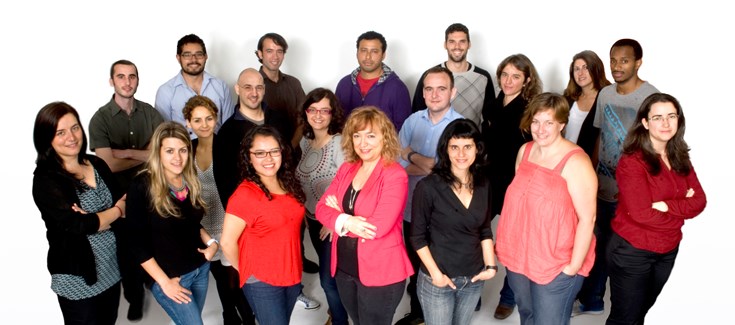Laura Lechuga received the Physics, Innovation and Technology Prize
On December 14th, the Physics Awards ceremony was held at the BBVA Foundation’s headquarters, organized by the Spanish Royal Society of Physics (RSEF) and the BBVA Foundation, that each year select the most relevant achievements of Spanish physics. On this occasion the achievements of nanoscience have been recognized and it has been highlighted the power of physics to expand the territory of the known universe and the role of scientists as a core element of social progress.
Professor Laura Lechuga, Scientific Director of Unit 4 of NANBIOSIS received the Physics, Innovation and Technology Prize was the only woman awarded.
Lechuga is a pioneer in Spain in the development of biosensors, devices that integrate in very little volume the analytical capacity of a laboratory, so they have the theoretical potential to revolutionize many technological areas that have a direct impact on society, from medical diagnosis to control of contaminants in the environment. The award winner works on two prototypes of nanophotonic biosensors to detect colon cancer and tuberculosis: “The future of immediate diagnosis goes through such devices, low cost and very high sensitivity, installed in mobile phones, which could be easily used also in regions in development” says professor Lechuga.
